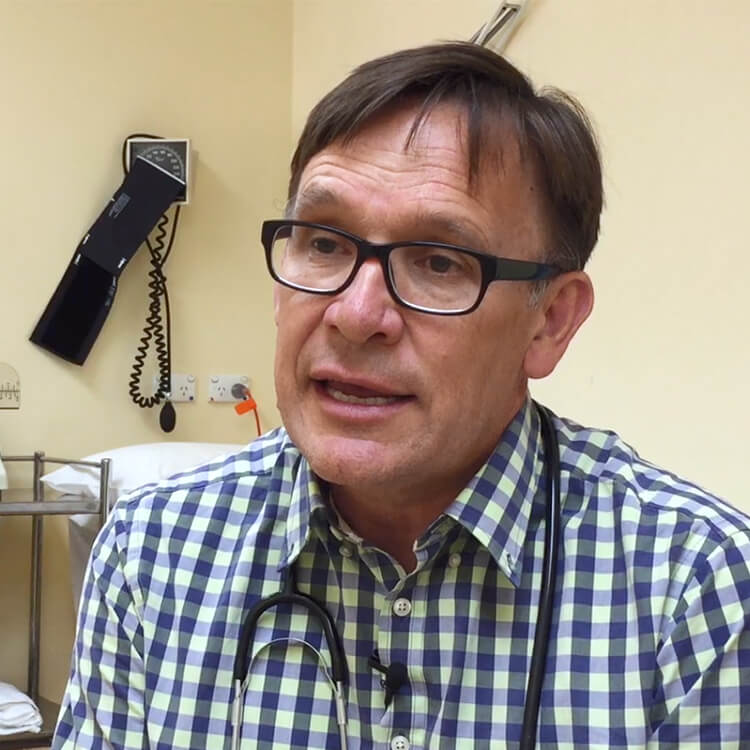Search

News & Events
New meningococcal strains bring increased risk in WAA new study has confirmed the changing pattern of meningococcal disease in Western Australia.

News & Events
The Kids Research Institute Australia leads WA arm of Australia’s first needle-free COVID-19 vaccine studyEnrolments for Australia’s first needle-free, gene-based COVID-19 vaccine study – to be led in WA by The Kids Research Institute Australia – are open.
Research
Impact of Host and Bacterial Metabolism on Antibiotic SusceptibilityAntimicrobial resistance (AMR) is a global healthcare emergency, directly causing 1.3 million deaths per year and predicted to increase dramatically over the coming decades. Understanding the molecular mechanisms underpinning antibiotic resistance is central to approaches for AMR surveillance and diagnosis in a clinical laboratory.
Research
Drug-resistant gram-negative bacterial infections in children in the Oceania region: review of the epidemiology, antimicrobial availability, treatment, clinical trial and pharmacokineticGram-negative bacterial infections remain a major cause of morbidity and mortality in children and neonates globally, compounded by the rise of antimicrobial resistance. Barriers to paediatric antibiotic licencing lead to reduced availability of potentially effective agents for treatment. For children and neonates in the Oceania region, specific challenges remain including a paucity of surveillance data on local rates of antimicrobial resistance, and lack of availability of newer, more costly agents.
Research
Global participatory wastewater surveillance to understand mpox clade diversity in war and conflict-affected countriesWar and conflict severely disrupt public health systems, compromising infectious disease surveillance in many affected regions. Mpox, a re-emerging zoonotic disease, poses a growing global threat, especially in areas where traditional monitoring is inaccessible.The mpox virus has distinct clades with varying transmission and severity.
Research
InfluenzaInfluenza (commonly known as the flu) is caused by a highly contagious virus spread mainly through coughing and sneezing. An annual flu vaccination is the most effective way to prevent flu outbreaks.
Research
Intranasal phage therapy overcomes antibody neutralization challenges in pulmonary Pseudomonas aeruginosa infectionsPhage therapy is a promising approach against multidrug-resistant infections, yet systemic administration can lead to incomplete cures. We investigated the distribution, immune responses, and efficacy of the therapeutic phage KPP10 delivered via intranasal or intraperitoneal routes in murine Pseudomonas aeruginosa lung infection models.
Research
Effectiveness of nirsevimab in preventing RSV-hospitalisation among young children in Western Australia 2024Respiratory Syncytial Virus (RSV) causes a significant burden of illness for children under 2 years of age. Nirsevimab, a long-acting monoclonal antibody, was registered for RSV prevention in Australia in 2023. In April 2024, Western Australia (WA) launched the country's first state-wide nirsevimab program for all infants and high-risk children entering their second RSV season.
Research
Validity of using a semi-automated screening tool in a systematic review assessing non-specific effects of respiratory vaccinesThe abstract screening process of systematic reviews can take thousands of hours by two researchers. We aim to determine the reliability and validity of Research Screener, a semi-automated abstract screening tool within a systematic review on non-specific and broader effects of respiratory vaccines on acute lower respiratory infection hospitalisations and antimicrobial prescribing patterns in young children.
Research
Outbreak investigation of norovirus gastroenteritis in a childcare facility in Central Queensland, Australia: a household level case series analysisNoroviruses are one of the most common causes of gastroenteritis in all age groups, including children. However, little has been reported on the transmission of norovirus within childcare facilities and the subsequent impact at the household level.
